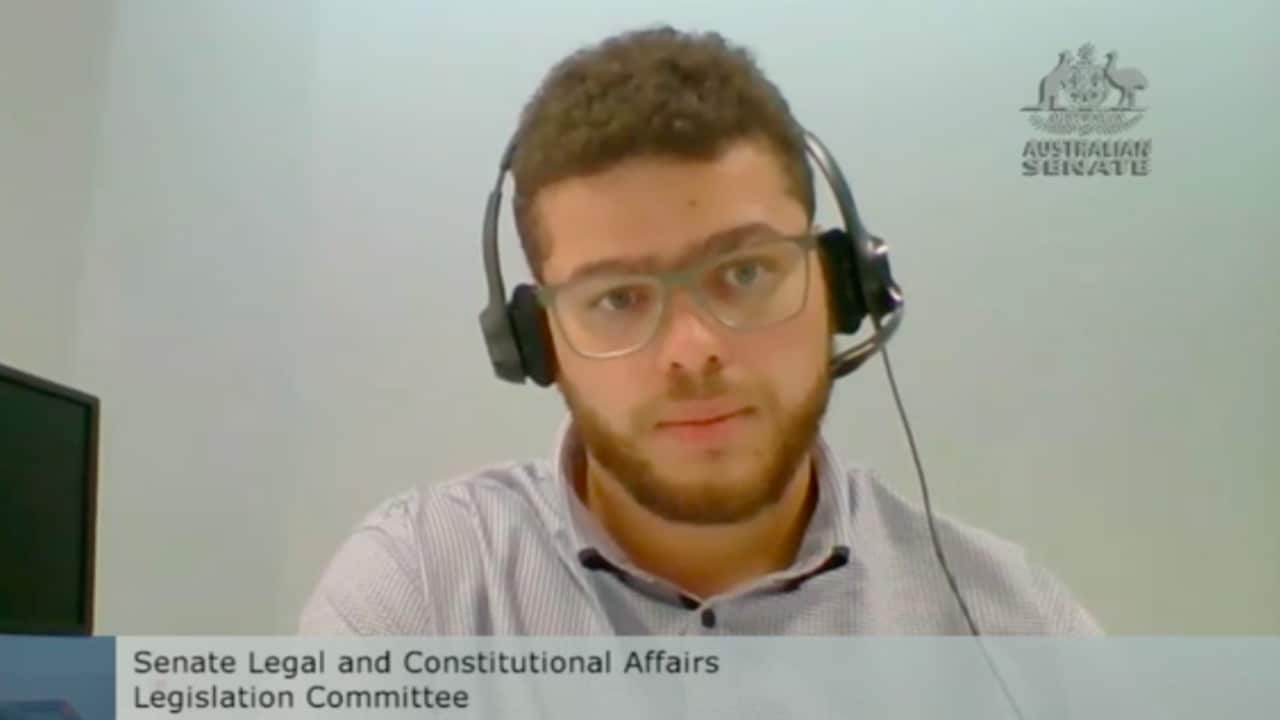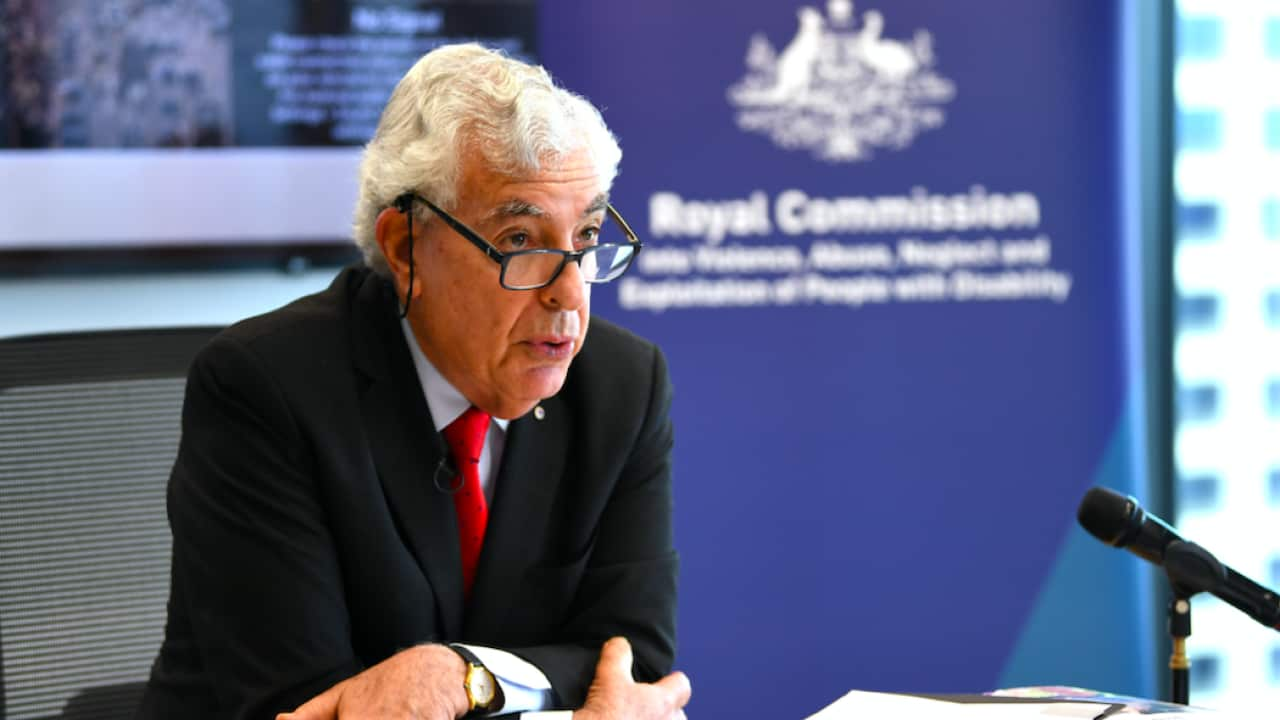Australia’s peak disability organisations have called for urgent reforms to extend privacy safeguards for witnesses at the Disability Royal Commission.
They are urging the government to pass the reforms as a matter of priority next week, almost 18 months after the commission's first public hearing.
The government announced plans to amend the Royal Commissions Act 1902 to , but no details of the reforms have been released.
They warn that potential witnesses have been reluctant to come forward due to fear of retribution from disability support providers or employers.
In an open letter, published on Thursday, seven peak disability organisations said “time was running out” for people with disability to feel comfortable coming forward to the Royal Commission into Violence, Abuse, Neglect and Exploitation of People with Disability.
The inquiry is scheduled to end in April next year. Advocates are now urging acting Attorney-General Michaelia Cash to introduce the legislation in the next sitting of Federal Parliament, starting on Monday.
Advocates are now urging acting Attorney-General Michaelia Cash to introduce the legislation in the next sitting of Federal Parliament, starting on Monday.

Acting Attorney-General Michaelia Cash. Source: AAP
“Time is now running out for people with disability to tell their stories, and there are many who simply will not speak out until our privacy can be guaranteed,” People With Disability Australia chief executive Sebastian Zagarella said.
“Now is the time to deliver legislation the government promised on October 20 last year that it would introduce this autumn.”
Disability Royal Commission chair and former federal court judge Ronald Sackville first requested the government make the changes more than a year ago, before making the same request in September last year.
A Commission spokesperson told SBS News they welcomed the government's announcement of proposed amendments, which they said should encourage more people with disability to share stories which “are at the heart of our inquiry”.
“While the Royal Commission does not know the precise details of the proposed legislation, we expect that, subject to very limited exceptions, the amendments will ensure that information provided to the Royal Commission by people with disability, their families, supporters, or any other person will remain confidential beyond the life of the Royal Commission,” they said.
Senator Cash did not respond to SBS News’ request for comment but told the earlier this week the government hoped to introduce the legislation in the March sitting period.
Greens senator Jordon Steele-John, who lives with cerebral palsy, told SBS News it was “totally unacceptable” it has taken some 18 months for the legislation to be introduced.
“We’ve seen nothing but delay from the Morrison government in relation to this critical piece of legislation, the only goal of which is to make disabled people safe to tell our stories during this historic Royal Commission,” he said, adding it should have been dealt with before the inquiry commenced. Currently, witnesses are able to request confidentiality for the duration of the inquiry and participate in private sessions.
Currently, witnesses are able to request confidentiality for the duration of the inquiry and participate in private sessions.

Greens Senator Jordon Steele-John has long fought for a royal commission into the treatment of people with disability in Australia. Source: AAP
But there is no safeguard to ensure the identities behind written submissions are sealed after the commission hands down its final report.
Advocates say these concerns have contributed to people with disability feeling they cannot share their stories, especially if they still live in the setting where the alleged abuses occurred.
“In some cases, people with disability still depend upon the people or institutions they wish to report for personal care and other essential support … Others might wish to report on the behaviour of their employers,” Mr Zagarella said.
“The reality is that without a guarantee of confidentiality people are being asked to risk their jobs, healthcare, finances, housing and in some cases their personal safety.
“We are unfortunately finding a lot of people who would like to make a submission are choosing not to take the risk.”
These concerns extend to young people and their families - who may have a “well-founded fear of retribution for speaking out”, Children and Young People with Disability Australia chief executive Mary Sayers said.
"These changes are urgently needed to provide increased safety and trust that people’s privacy will be protected, now and in the future.”
SBS News has previously reported that only are people with lived experience of disability.
“These figures are likely to be underestimates,” Kerri Mellifont, the senior counsel assisting the commission, said in the opening statement to the 11th public hearing. “Some people, as is their right, have chosen not to disclose their disability.”
More than 700 people have requested private sessions, which remain confidential beyond the life of the commission, with 219 completed so far, the commission spokesperson said.
When he announced the planned changes, Attorney-General Christian Porter - who is currently on medical leave - said the amendments would ensure the findings of the commission were based on a true reflection of people's experiences.
“We want people in the community to engage fully with the Royal Commission,” he said.
Meanwhile, the government is yet to approve a request from Mr Sackville for a , first requested in October’s interim report.
At the time, Mr Sackville said the Commission was not “a sprint, it’s a marathon” - noting the terms of reference covered by the inquiry were larger than any other royal commission in the past 20 years.
If granted, the final report would be handed down on 29 September 2023 - almost a year and a half after the original deadline.
The commission spokesperson said Mr Sackville had written to Prime Minister Scott Morrison and Mr Porter in December last year, explaining the “urgency” of the request, but are yet to receive a decision.
The next public hearing, which will examine the NDIS and service providers, is due to begin in Sydney on 24 May.
A free national legal service has been established to assist people to share their story with the commission. The service, called , is independent of the inquiry and funded by Legal Aid.
People with disability who are impacted by violence, abuse, neglect or exploitation are also able to contact the on 1800 421 468 for counselling support or to be connected to a counsellor or advocate near you. Support is free, independent and confidential.













